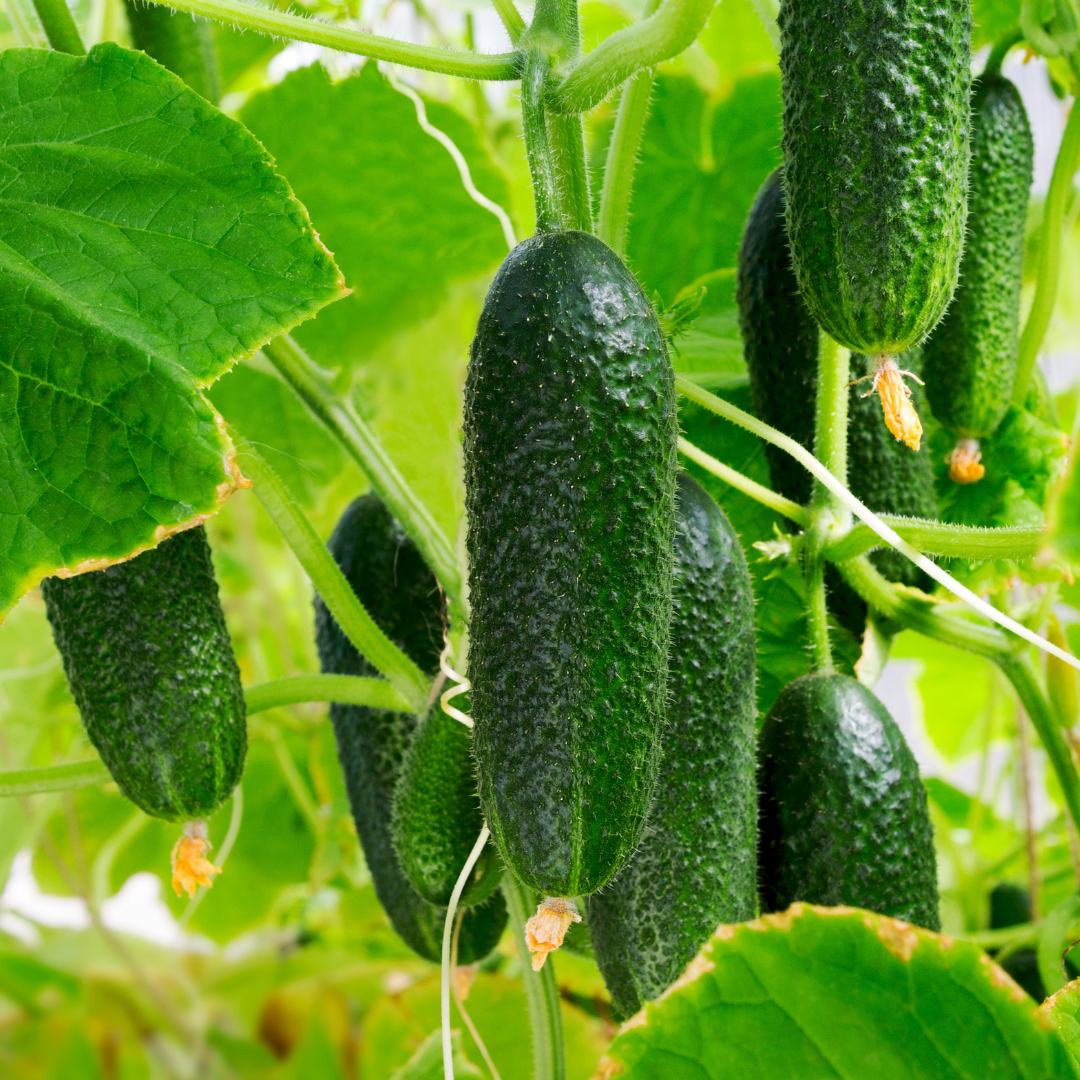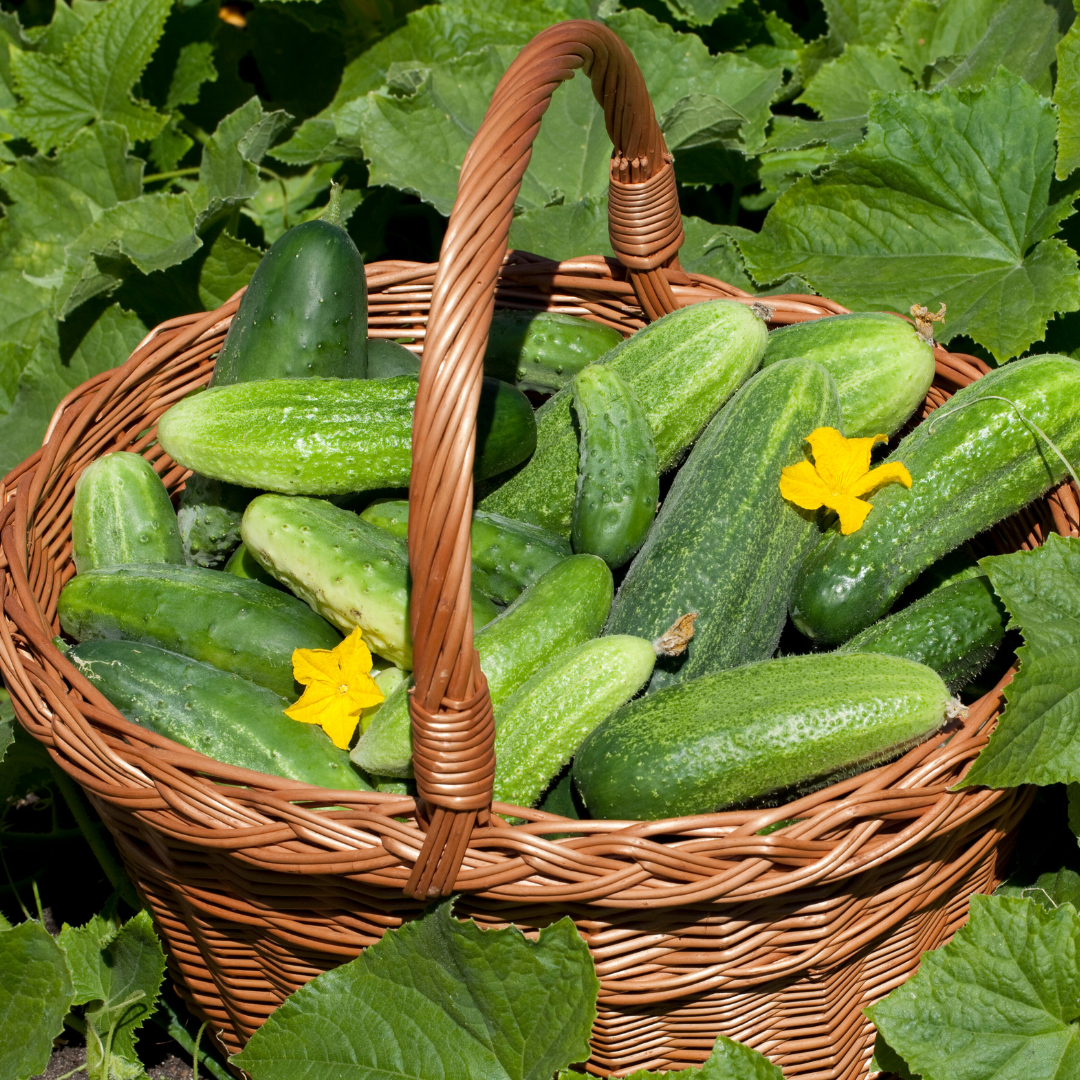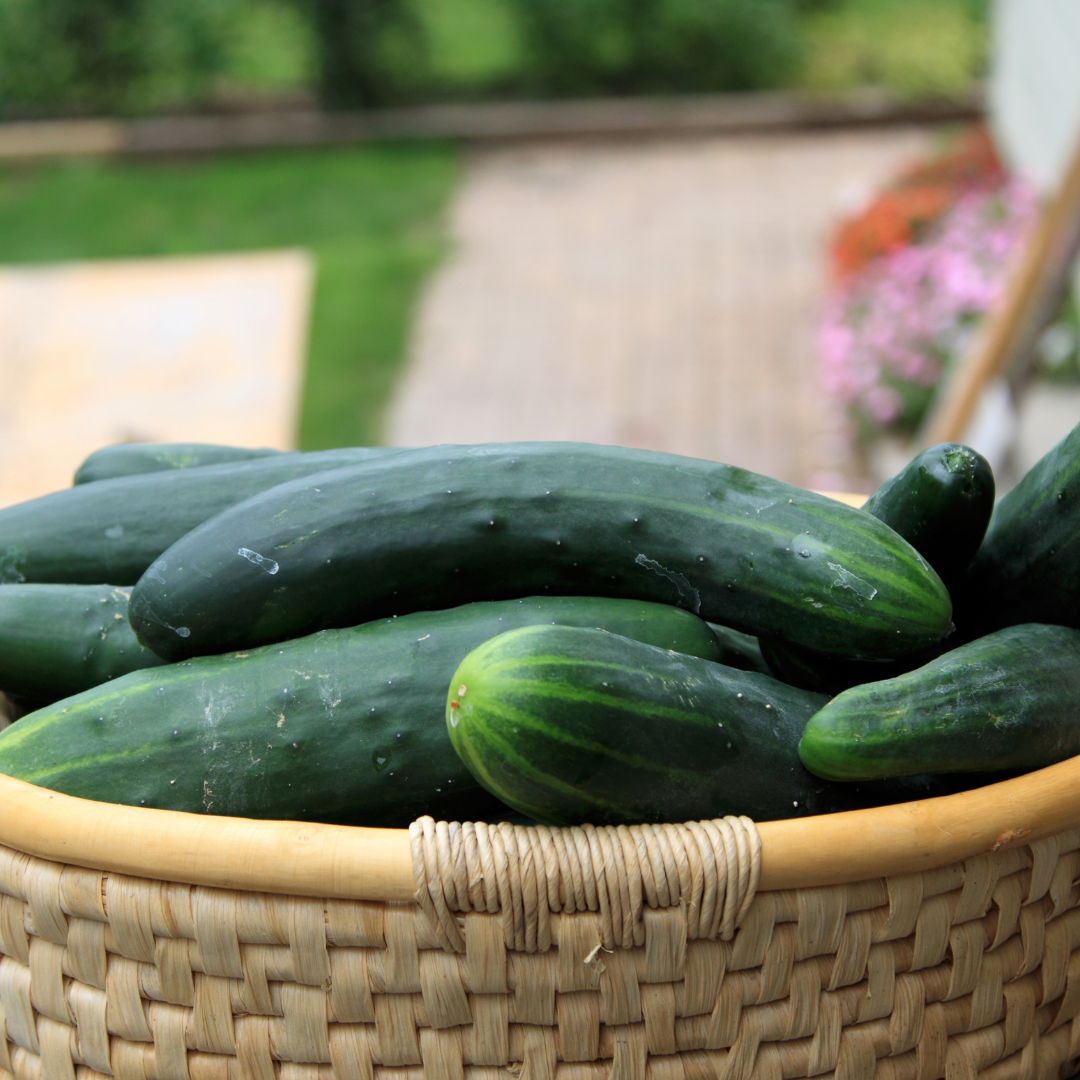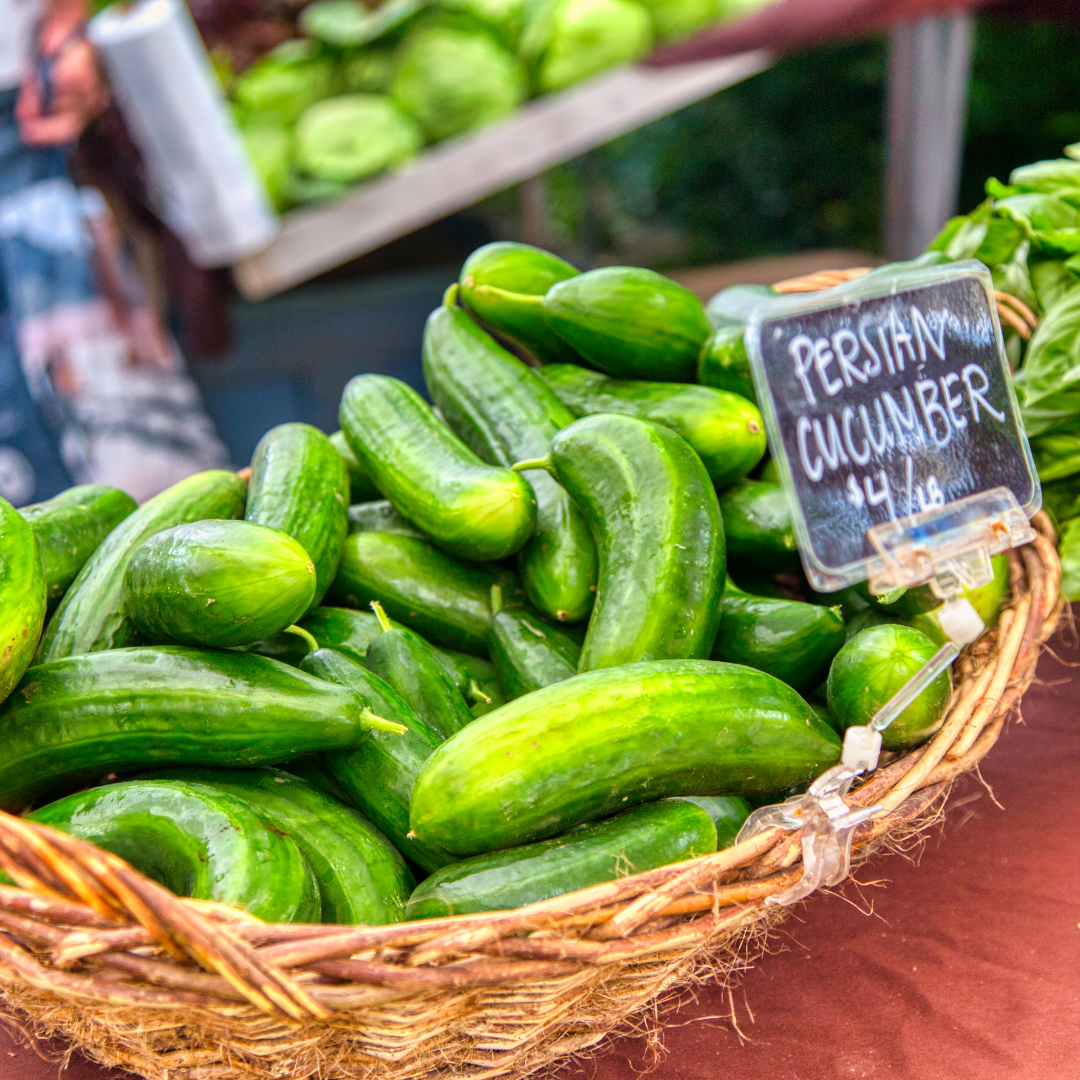Cucumbers are a favorite vegetable for many people, and growing them from seed can be a rewarding and satisfying experience. With a little bit of patience, care, and attention, you can grow your own delicious and healthy cucumbers right in your backyard. In this article, we will discuss how to grow cucumbers from seed and the important things you need to know to ensure your plants are healthy, productive, and free from pests and diseases.
Choosing the Right Cucumber Seed Variety
The first step in growing cucumbers from seed is choosing the right cucumber variety. There are two main types of cucumbers: slicing cucumbers and pickling cucumbers. Slicing cucumbers are larger and typically used for salads and sandwiches while pickling cucumbers are smaller and used for pickling. There are also bush varieties that are well suited for small gardens or container gardening, and vining varieties that require more space to grow.
When choosing a cucumber variety, consider the growing conditions in your area, the space you have available, and your personal preferences. Look for disease-resistant varieties that are resistant to powdery mildew, cucumber beetles, and other common pests and diseases. Disease-resistant varieties are more likely to produce healthy and productive plants, and they can help reduce the risk of disease and pest problems.
Cucumber Seed Assortment | 5 Variety Pack

$9.95
Heirloom Cucumber Seeds Variety Pack – Perfect for Pickling, Slicing, and Fresh Eating Introducing our 5 Cucumber Seeds Variety Pack, the ultimate choice for gardening enthusiasts seeking to grow fresh, delicious cucumbers in their own backyard. This premium seed pack… read more
Sowing Cucumber Seeds
The next step in growing cucumbers from seed is seed starting. Cucumber seeds can be sown directly in the garden or started indoors, depending on your climate and the timing of your frost date. If you live in a colder climate, you may need to start your cucumber seeds indoors to give them a head start before transplanting them to the garden.
To start cucumber seeds indoors, fill a seed starting tray with potting soil and moisten the soil with water. Place one or two cucumber seeds in each cell and cover them with a thin layer of soil. Keep the soil moist and warm, and the seeds should germinate within 7-10 days.
If you are sowing cucumber seeds directly in the garden, wait until a few weeks after the last frost date in your area. Cucumber seeds need warm soil to germinate, so wait until the soil has warmed up to at least 60 degrees Fahrenheit before sowing your seeds. Make sure the soil is moist but not waterlogged, and sow the seeds 1 inch deep and 6-8 inches apart.
Soil and Water Requirements For Cucumber Seeds
Cucumber plants prefer well-drained soil that is rich in organic matter. Before planting your cucumber seeds, amend the soil with compost or other organic matter to improve soil fertility and structure. This will also help to retain soil moisture, which is important for growing healthy cucumber plants.
Marketmore 76 Cucumber Seeds

$2.49
Marketmore 76 Cucumber Seeds - Heirloom, Non-GMO, Non-Hybrid, Open-Pollinated Looking to grow delicious, crisp, and reliable cucumbers? Our Marketmore 76 Cucumber seeds are the perfect choice for home gardeners and growers! These heirloom seeds are non-GMO, non-hybrid, and open-pollinated, ensuring… read more
Cucumber plants require about an inch of water per week, and consistent soil moisture is essential for producing healthy and productive plants. Water your cucumber plants deeply once or twice a week, depending on the weather and soil moisture levels. Avoid overwatering, as this can lead to waterlogged soil and fungal diseases.
Sunlight Requirements For Cucumbers
Cucumber plants require full sun to produce fruiting. Choose a location in your garden that receives at least 6-8 hours of direct sunlight per day. If you are growing cucumbers in containers, place them in a sunny location and rotate them regularly to ensure even exposure to sunlight.
Pest and Disease Management For Cucumber Plants
Cucumber plants are susceptible to a number of pests and diseases, including cucumber beetles, powdery mildew, and bacterial wilt. To prevent these problems, choose disease-resistant cucumber varieties, keep your plants healthy and well-watered, and avoid planting cucumbers in the same location year after year.
If you do encounter pest or disease problems, there are several organic methods for managing them. For example, you can handpick cucumber beetles and remove any infected plant material to prevent the spread of disease. You can also use natural predators, such as ladybugs and lacewings, to control pests.
Powdery mildew is a common fungal disease that affects cucumber plants. To prevent powdery mildew, avoid overhead watering and ensure good air circulation around your plants. You can also spray your plants with a mixture of water and baking soda to control powdery mildew.
Armenian Cucumber Seeds

$2.49
Armenian Cucumber Seeds for Planting - Grow Crisp, Delicious, and Nutrient-Rich Cucumbers in Your Garden! Grow your own delicious Armenian Cucumbers with our premium-quality, heirloom, non-GMO, non-hybrid, and open-pollinated seeds! Perfect for home gardeners and market growers, Armenian cucumbers (also… read more
Harvesting Cucumbers
Cucumber plants typically start producing fruit about 50-70 days after planting, depending on the variety and growing conditions. When harvesting cucumbers, look for firm, dark green cucumbers that are about 6-8 inches long for slicing cucumbers, or smaller cucumbers for pickling.
To harvest cucumbers, simply twist or cut the stem off the vine. Be sure to harvest your cucumbers regularly, as leaving them on the vine for too long can lead to overripe and bitter fruit. Also, avoid handling your cucumber plants when they are wet, as this can spread disease.
Vegetable Seed Vault Kit | 35 Variety Pack

$29.95
$49.95
Ultimate Survival Seed Vault: 16,000+ Non-GMO Heirloom Vegetable Seeds for Emergency Preparedness Introducing the Seed Vault Kit, your all-in-one solution for emergency preparedness and sustainable gardening. This premium seed kit contains over 16,000 non-GMO, Heirloom, Non-Hybrid, and Open Pollinated seeds,… read more
In Conclusion
Growing cucumbers from seed can be a fun and rewarding experience. By choosing the right cucumber variety, sowing your seeds at the right time, providing adequate soil moisture and sunlight, and managing pests and diseases, you can grow healthy and productive cucumber plants in your own backyard. With a little bit of care and attention, you can enjoy a bountiful harvest of fresh, delicious cucumbers all season long.
We have lots of varieties and assortments of heirloom cucumber seeds to choose from for your home garden!
FAQ’s
Q: When should I start sowing cucumber seeds indoors?
A: You should start sowing cucumber seeds indoors about 4-6 weeks before your last frost date. This will give your plants enough time to grow and develop before transplanting them to the garden.
Q: How deep should I sow cucumber seeds?
A: Cucumber seeds should be sown about 1 inch deep in the soil, and spaced about 6-8 inches apart. This will give your plants enough room to grow and produce fruit.
Q: How often should I water my cucumber plants?
A: Cucumber plants require about an inch of water per week, and should be watered deeply once or twice a week. Be sure to water the soil and avoid overhead watering, as this can lead to fungal diseases.
Q: What kind of soil do cucumber plants need?
A: Cucumber plants prefer well-drained soil that is rich in organic matter. Before planting your cucumber seeds, amend the soil with compost or other organic matter to improve soil fertility and structure.
Q: How can I prevent powdery mildew on my cucumber plants?
A: To prevent powdery mildew, avoid overhead watering and ensure good air circulation around your plants. You can also spray your plants with a mixture of water and baking soda to control powdery mildew.
Q: How do I know when my cucumbers are ready to harvest?
A: Cucumbers are ready to harvest when they are firm, dark green, and about 6-8 inches long for slicing cucumbers, or smaller for pickling. Be sure to harvest your cucumbers regularly to prevent overripe and bitter fruit.







